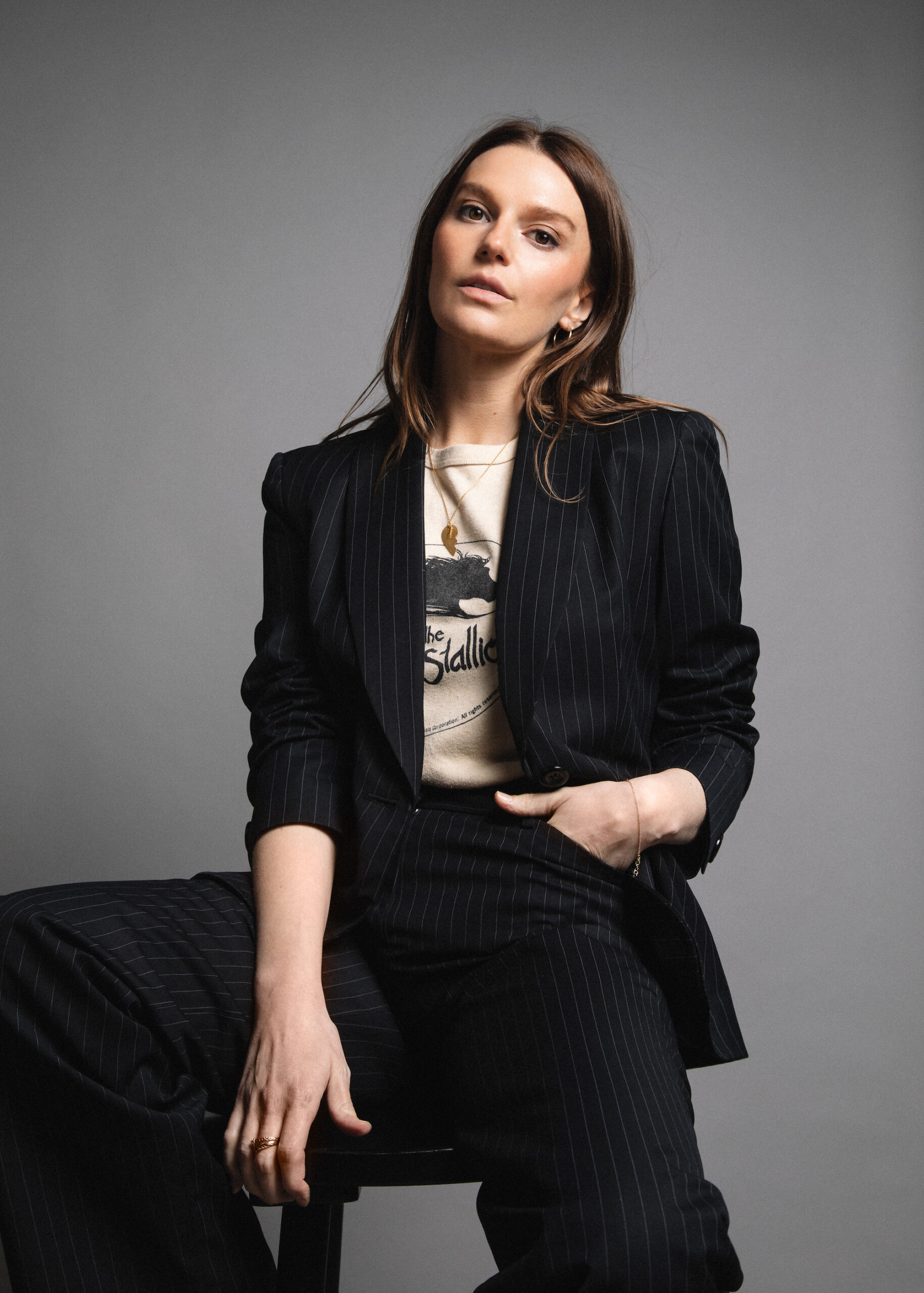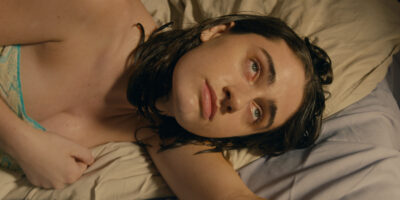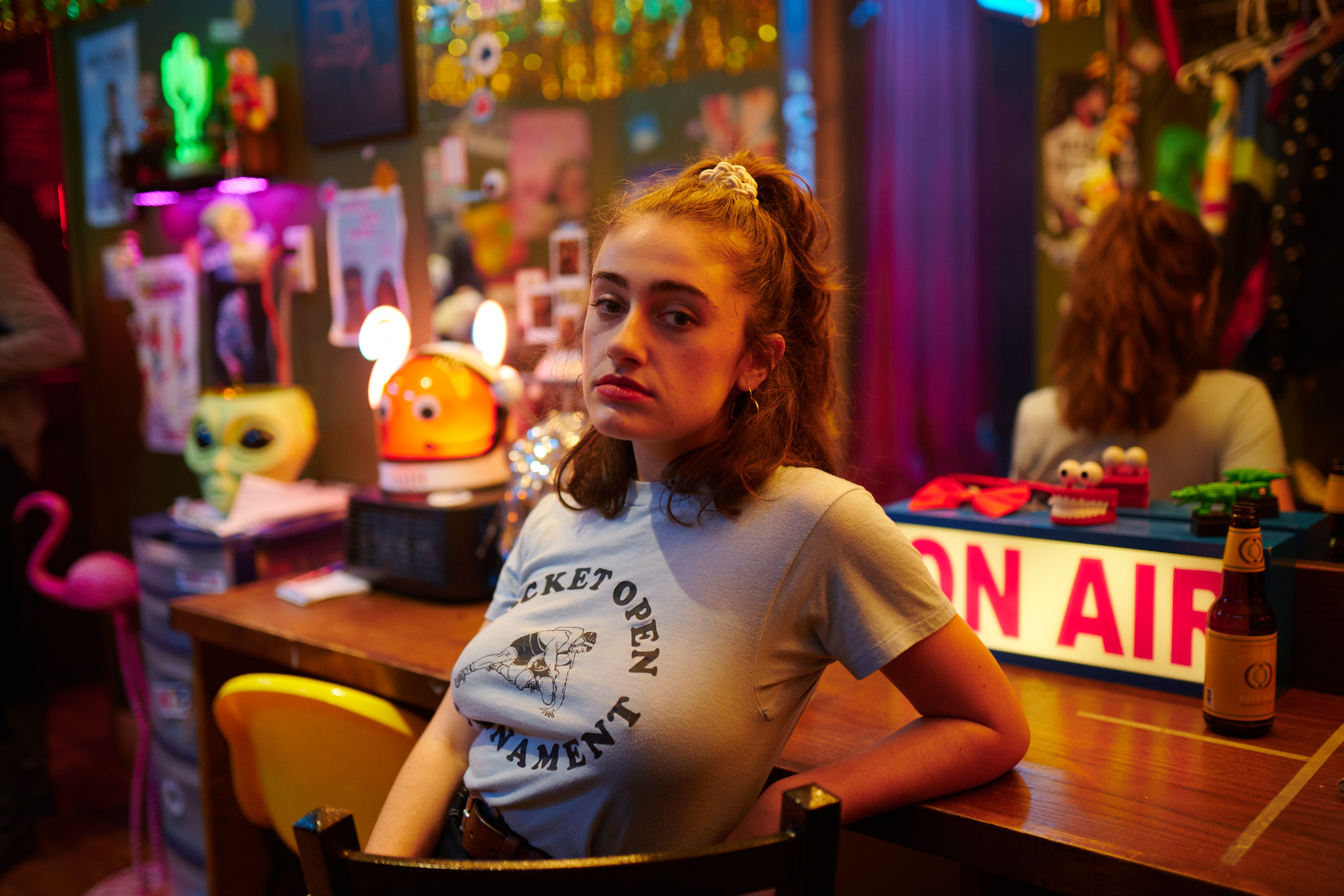It is hard to believe that Ally Pankiw, named by The Hollywood Reporter as one of the “Top 15 Canadian Talents to Watch”, is only now releasing her feature directorial debut.
From directing music videos for artists like Ariana Grande to working behind the scenes on Netflix’s pandemic hit Feel Good, Pankiw’s journey to film was bound to happen at any given moment. When the funding came through, she knew exactly what project to bring to the limelight.
I Used to Be Funny, written and directed by the filmmaker, follows a stand-up comedian named Sam (Rachel Sennott), who is struggling with PTSD and unable to carry on with her stage act. When Brooke (Olga Petsa), a girl she used to nanny, goes missing, Sam debates whether or not to search for her whereabouts.
After 10 years in the making, this Canadian indie premiered at SXSW last year and is now available to watch on the big screen. In the lead up to the film’s theatrical release, we spoke with Pankiw about casting real-life comedians, trying to capture the complexity of PTSD on screen, and how shooting in Toronto was a full-circle moment.
It’s been a journey to make this film, since you actually started working on it in 2013. After directing TV shows like Feel Good and The Great, why was this the right time to make your feature debut?
This was when I finally got funding. I’ve been trying to make the film for a while. As filmmakers, you have a script and you love it and you want to get it made, but it doesn’t happen when you think it’s going to. It was always something that I was trying to progress while I was doing other jobs, and that included my TV jobs as well.
It was when someone signed on to it that it became the right time, as opposed to me being ready. You’re never really ready to make something personal and vulnerable.

Ally Pankiw. Photo by Taylor James.
What’s interesting is that some projects that take a long time to get made often lose their sense of timing, but I Used to Be Funny has a story that, unfortunately, still resonates with people today.
Violence against women and the unique nightmare of being a young woman in entertainment and comedy is always going to be topical. Even though I started writing it in 2013 and we shot it in 2021, it’s still relevant because we’re continuing to deal with these things and talk about them.
Rachel Sennott, who plays Sam, has a background in stand-up comedy, much like other actors in this film. During the casting process, was it important for you to choose people that understood the nuances of the comedy scene?
Totally! Sometimes we talk about inappropriate things with a sense of gallows humour. Sometimes we talk about heavy subject matter and we have to make it light to survive it. I think comedians just get that and they are so good at not acting vulnerable, but just being vulnerable authentically. That’s just what they sort of have to do on stage, so to me that allowed them to tap into these roles with grace.
Rachel and Olga have such an organic connection on screen that is beautiful to see. How was it for them to find that chemistry in such a limited time frame?
Rachel signed onto the film and we offered her the role. We were so grateful that she said “yes” and loved the project. Then, we had to cast Brooke as a Canadian, so we did a nationwide search for a bunch of young actresses and when Olga’s tape came in, I remember we were all just so blown away, but she just had a different feel than we thought Brooke would have.
As soon as Olga and Rachel were reading together, it was pretty undeniable that they just spoke the same language and they just seemed to connect really organically. Olga is just so brilliant and so funny that she just fell in line with the rest of the cast and they immediately hit it off. I remember they read a really tough scene together in their chemistry read and we were all very emotional watching it.
There is a key scene in the film in which Sam undergoes a traumatic event and right after this moment happens, her natural instinct is to protect Brooke. Why did you decide to include that in the story?
That scene sums up one of the themes of the film, which is that a lot of times women don’t heal or take the next step in their recovery unless they feel like someone’s depending on them to do so. It was really important to showcase that what brings Sam back to herself and makes her take her next step on the road to recovery is how much she cares for this young woman.
We all feel a bit of that responsibility. It’s like we want to make the world a little bit better for the next generation of young women coming after us and even the women that report their assault or come forward in these cases, they’re doing it for someone else. You often hear people say, “I told my story because I just didn’t want the same thing to happen to someone else.”

Another strong theme here is PTSD and how there is no timeframe for recovery. What do you think films and TV shows still get wrong about this subject matter?
I think recovery is just painted as if you accomplish one thing you’ll feel better, which is just not the case. For a lot of people on screen, when revenge is served, that makes them recover and that’s very rarely the end of the story. For some people that might give them the relief to help them heal, but it’s definitely not always the case. It’s not what this story is based on.
I Used to Be Funny is shot in Toronto and you have a lot of history with this city, since this is where you started your career. Can you tell me a little bit about returning to Toronto and shooting this here?
I really wanted to embrace what a robust comedy scene we have here and just how many talented comedians are in this city. It felt appropriate to tell this story here. It was really nice to shoot it at home and with people I’ve known for a very long time, crew members that I’ve started my career with. It was satisfying to shoot at places like BMV Books, Comedy Bar, and Niagara Falls.
Lastly, you’ve worked with several beloved Canadians, such as Mae Martin and Dan Levy. Do you plan on reuniting with them to collaborate on future projects?
I would love to, absolutely. I’d like to keep working with many great funny Canadians, but those souls especially.
I Used to Be Funny arrives in theatres across Canada on June 7. On June 8, join Pankiw and Mae Martin for a Q&A following a screening of the film at TIFF Lightbox.



 Follow Us On Instagram
Follow Us On Instagram
